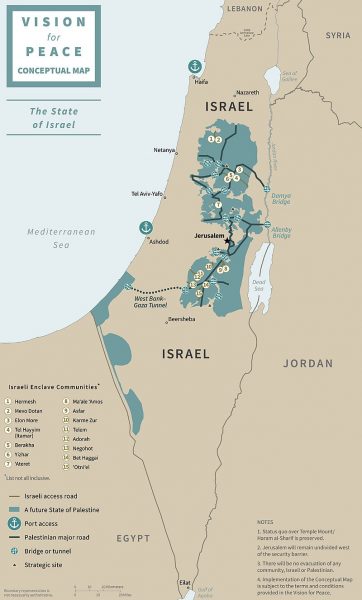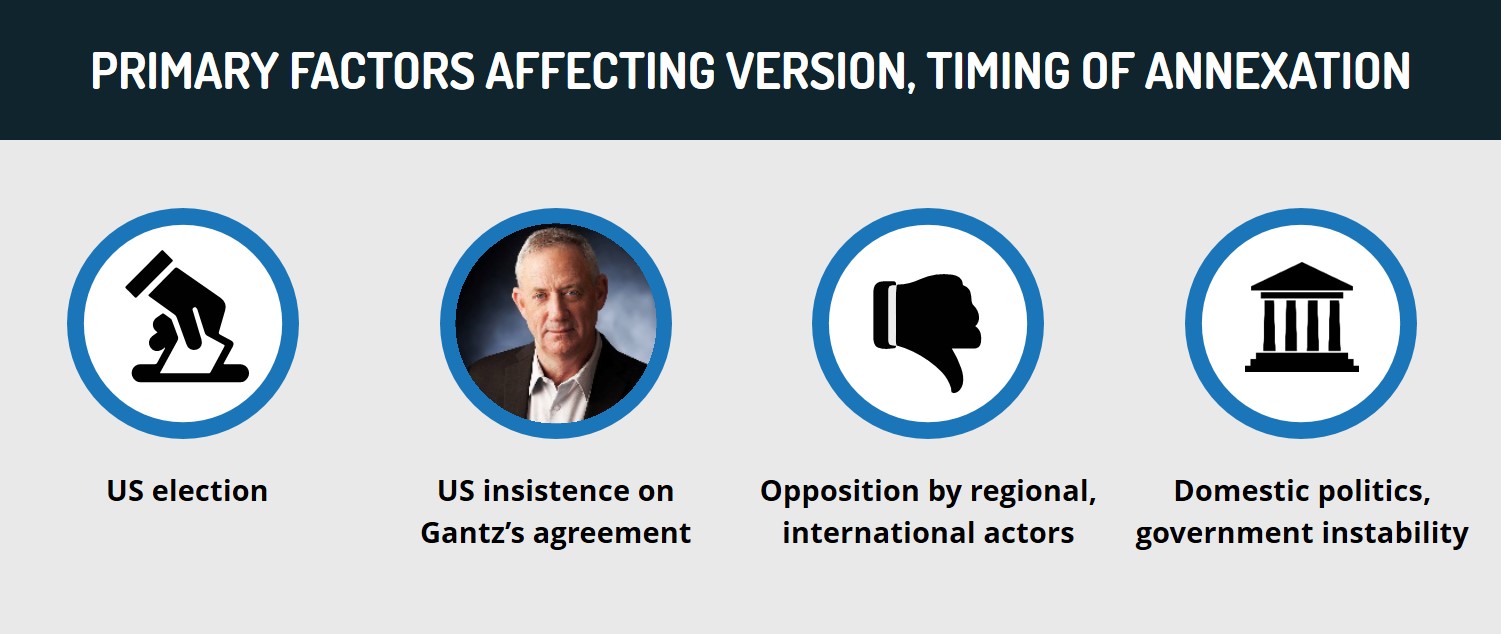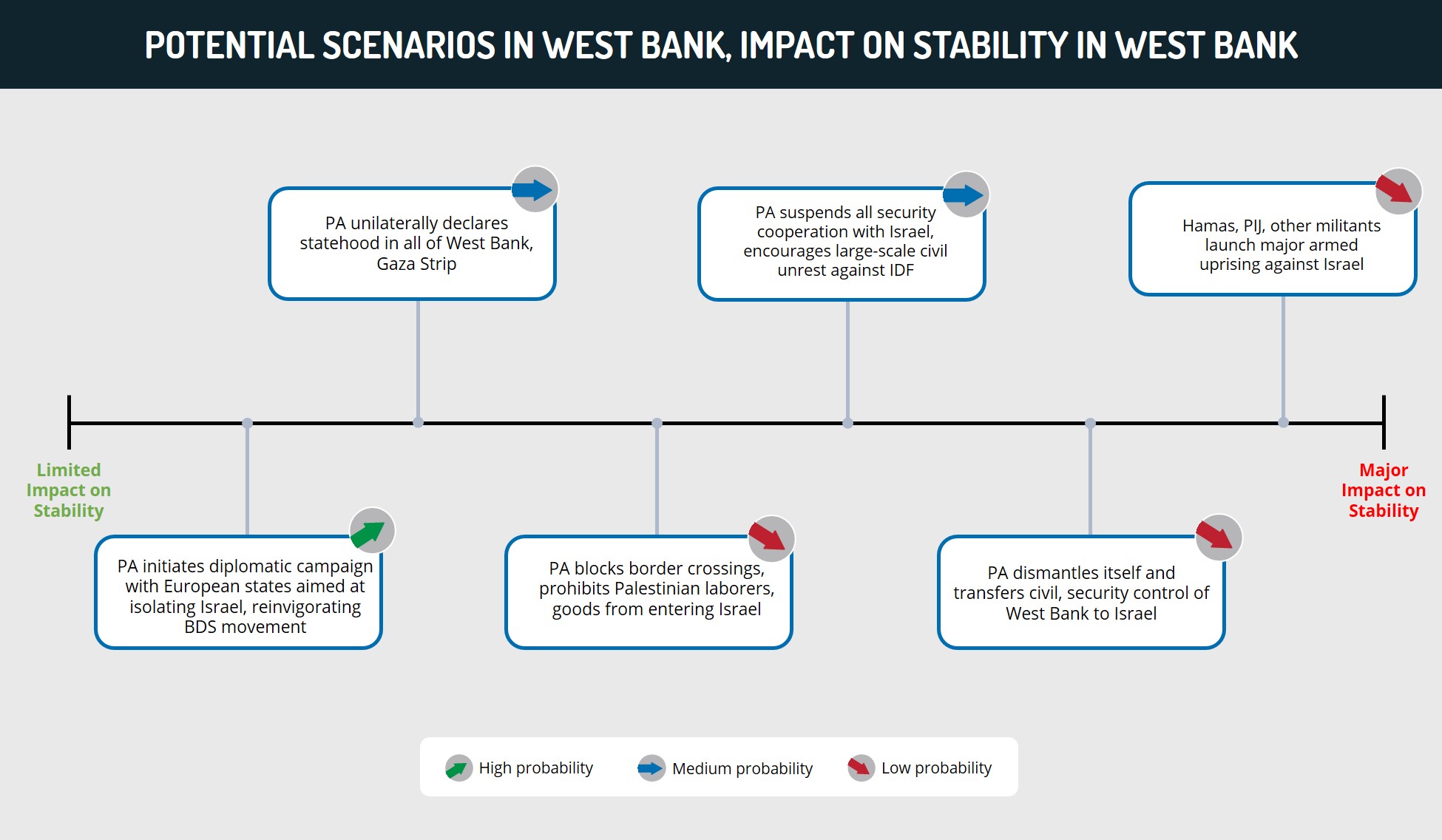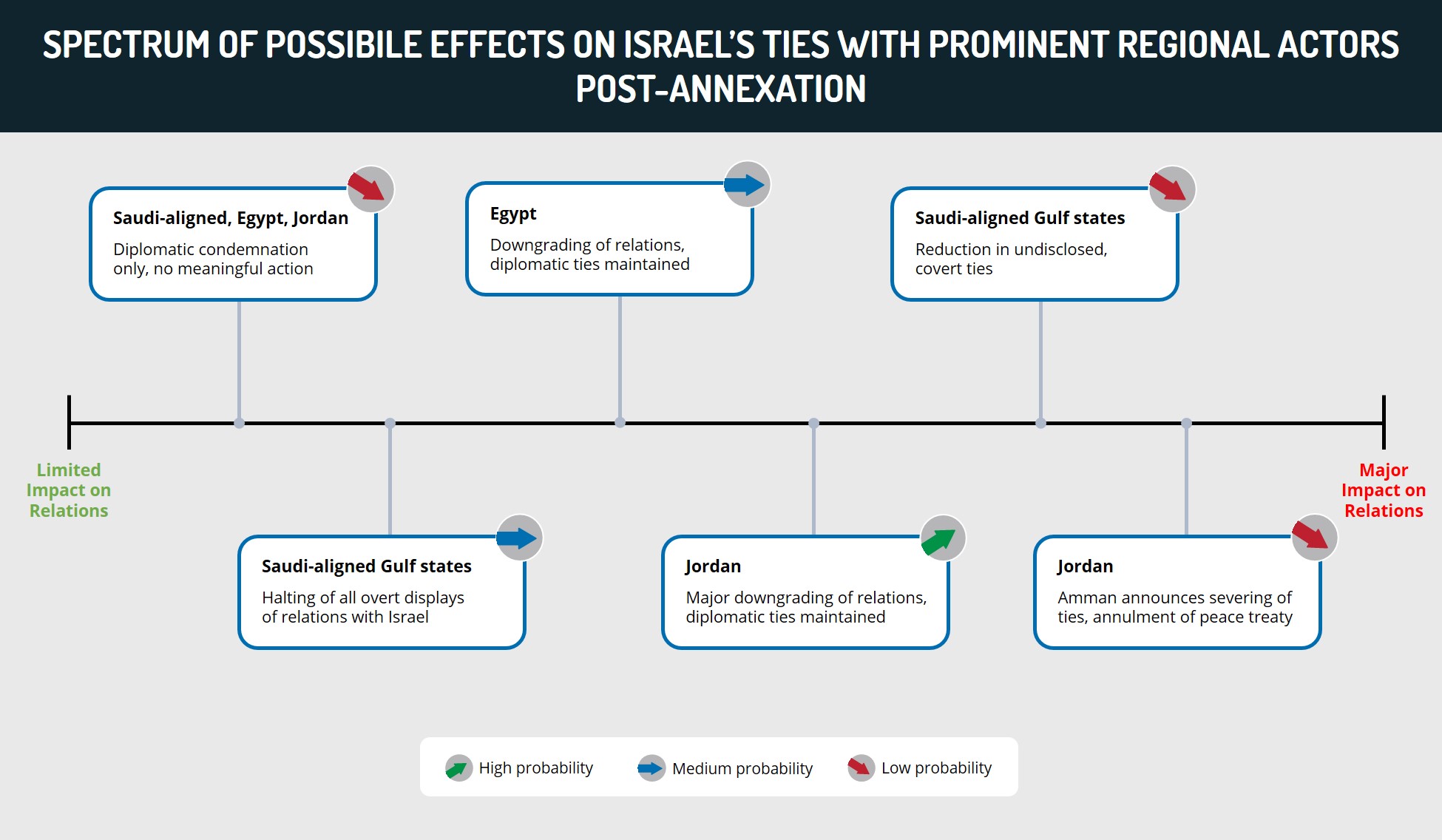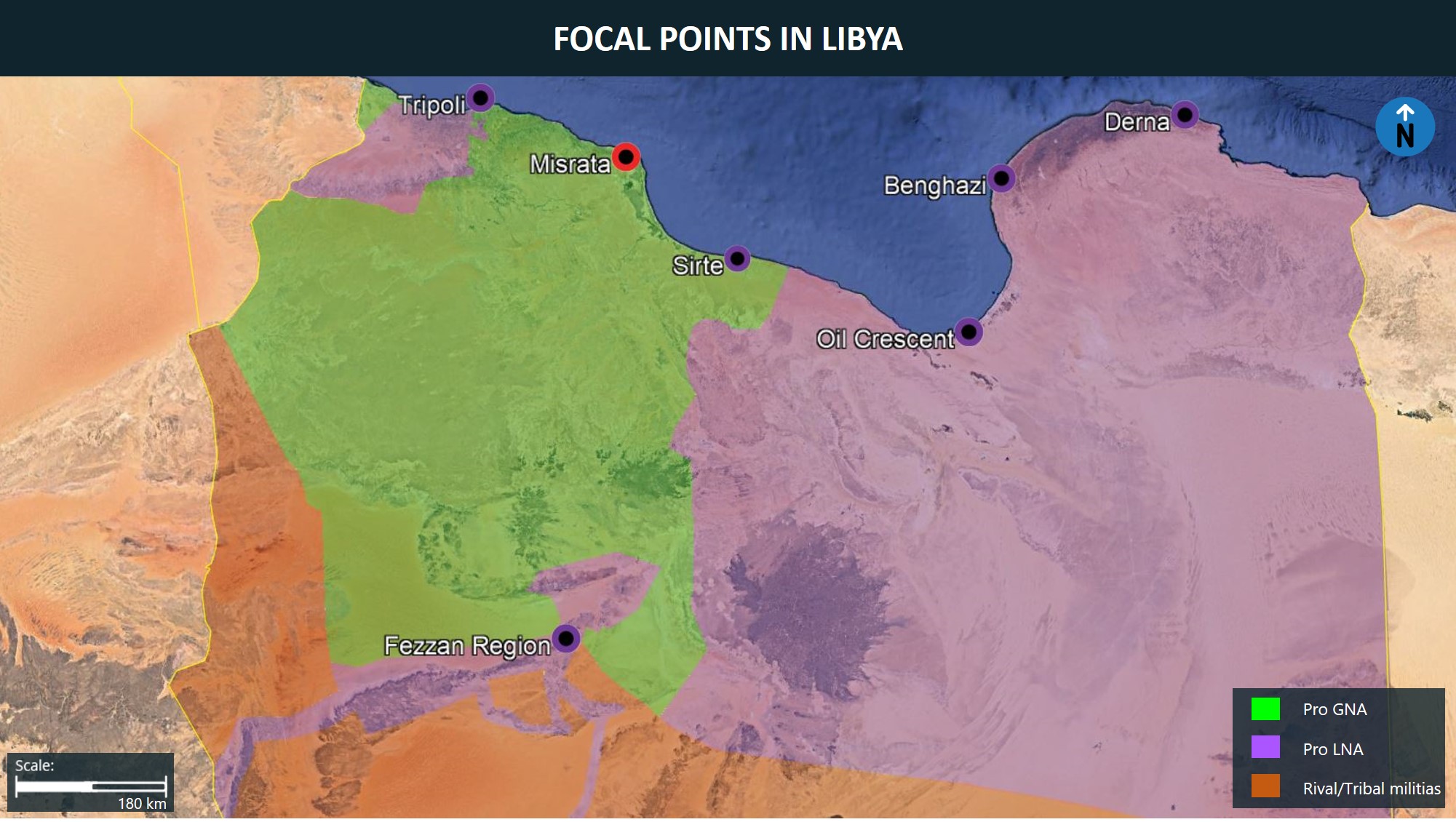Executive Summary
- On April 3, an international news agency released a video of an address by former Crown Prince of Jordan, Prince Hamzah bin Hussein, who claimed to be under house arrest and stated that the Kingdom had become “stymied in corruption.” This followed a report on April 3 of an alleged plot to “unseat” the King, which prompted the arrest of up to 20 senior officials.
- Although the foiling of a coup plot remains unconfirmed, the very public expression of criticism by a prominent member of the royal family directed towards King Abdullah II due to the alleged endemic state corruption constitutes a highly notable and unprecedented event within Jordan, which has largely been one of the most stable states within the Middle East over recent years.
- The dissemination of the video by Prince Hamzah is likely to legitimize other actors who may harbor anti-monarchy sentiments within Jordan and may foment protests. However, the King’s current control of the state security apparatus renders it unlikely that any efforts to unseat him or undermine his rule will succeed, at least at the current juncture.
- Travel to Amman may continue while adhering to all security precautions regarding civil unrest and COVID-19 regulations. Consult with us at [email protected] or +44 20-3540-0434 for itinerary-based consultation and on-ground contingency support options.
Please be advised:
Video by Prince Hamzah bin Hussein
- During the night hours of April 3, a prominent international news agency released a six-minute-long video message by Jordan’s former Crown Prince, Prince Hamzah bin Hussein, the half-brother of King Abdullah II. In the video, Prince Hamzah, sat with a picture of his father, the late King Hussein in the background, and alleged the following:
- He was placed under house arrest after he was visited by the Chief of Staff of the Jordanian Armed Forces (JAF). He stated that the Chief of Staff informed him that he is not allowed to “go out [and] to communicate with people.”
- The Chief of Staff stated that the reason behind the move was that in meetings in which Prince Hamzah participated, “or on social media, relating to visits that I have made, there had been criticism of the government, or the King [Abdullah II].” The Chief of Staff allegedly stated that Prince Hamzah was not himself critical of the King at these meetings in answer to this question.
- Several people he knows, including his friends, have also been arrested by authorities. His security detail has also been removed.
- His own internet and telephone have been cut and that he released this video using a satellite internet connection, which he was informed is going to be cut off as well.
- “I am not the person responsible for the breakdown in governance, for the corruption, and for the incompetence that has been prevalent in our governing structure for the last 15 to 20 years and has been getting worse by the year. I am not responsible for the lack of faith that people have in their institutions.”
Other Related Developments, Statements
- During the evening hours of April 3, Jordan’s official news agency reported that following a security investigation, several Jordanians, including officials, were “arrested for security reasons.” The report added that “an investigation is underway.”
- An unconfirmed report in a prominent US-based news agency indicates that former Crown Prince, Prince Hamzah bin Hussein, and up to 20 other officials, were detained “amid an ongoing investigation into an alleged plot to unseat King Abdullah II.”
- Jordan’s official news agency reported during the night hours of April 3 that Prince Hamzah is neither under house arrest nor has he been detained “as reported by some media outlets.”
- Several prominent news outlets in Jordan published reports on the developments on April 4. The news agencies largely voiced support for the monarchy.
- On April 4, Queen Noor, the widow of Prince Hamzah’s father, the late King Hussein, and mother of Hamza, published a message on social media condemning the actions against her son, stating that she is “praying that truth and justice will prevail for all the innocent victims of this wicked slander.”
- During the afternoon hours of April 4, the President of the Jordanian Senate, Faisal al-Fayez stated that “the King is a red line” and that “we will confront every trembling hand seeking to tamper with the security of Jordan” in response to what he said were “malicious plots being hatched in secret.”
International Responses
- An Israeli diplomatic correspondent reported that Jordanian officials sent a message to Israel that “the situation is under control” and that there is no threat to the stability of Jordan against the backdrop of the development.
- Several governments, including Saudi Arabia, Bahrain, and Egypt, extended their public support to Jordan’s King Abdullah II.
Former Crown Prince’s Video & Reported Foiling of Coup Plot
- This ongoing development is highly notable given that public criticism of Jordan’s state governance from within the Jordanian royal family is largely unprecedented. This is given that such accusations of endemic corruption and nepotism, implicitly accuses the monarch. Moreover, although unconfirmed, if even parts of the report that elements within Jordan sought to stage an “alleged plot to unseat” the King are true, this would constitute an even more noteworthy development. This is because the Kingdom of Jordan has overall been one of the most stable states within the Middle East region over recent years and a strategic partner to the West. Although protests against the Prime Minister-led government and its policies are periodically recorded, public expressions of dissent within the upper echelons of the Kingdom against the monarch, and certainly calls for his removal, remain marginalized and extremely rare in Jordan.
- Based on the current information and Prince Hamzah’s indication of the stipulated reason for his arrest, namely, criticism towards Jordanian authorities during meetings he had participated in, it is less likely that Jordanian authorities were responding to an imminent armed coup attempt. It is more likely that the operation was an effort to curtail criticism of the monarchy from within the royal family and higher political echelons of the country. This is partially supported by the lack of reported armed conflict in Jordan, although it is unlikely at this stage that any coup plot within Jordan, especially one tied to members of the royal family itself, would have involved the use of force. Regardless, if any coup plot were imminent, the plotters would have likely used the April 3 arrest raids, as well as Prince Hamzah’s video message, as justification to execute their plan, prior to a likely prolonged crackdown by authorities on perceived dissidents following the current events.
- Given the reported scale of arrests and seniority of the arrestees as well as the public and direct criticism by the Prince regarding the functioning of the state, it remains possible that such a plan existed, albeit in a nascent stage. In this context, the current arrests highlight the monarch’s ability to monitor and clamp down on prominent forces within the Kingdom that express criticism towards him. The public nature of the detentions and the high-profile targets also constitute a show of force by Abdullah II and an effort to convey the message that public criticism towards the functioning of the monarchy is intolerable, especially from within the royal family. This is because such expressions of perceived dissent point to a lack of cohesion within the monarchy, which has constituted a source of stability within the Kingdom. To this end, the King and his supporters within the political system have used all means at their disposal to protect the monarch amid an overall effort to secure the stability of the state.
- The very fact that the arrests were carried out, likely at the King’s direct behest, and the April 4 publications in several of Jordan’s news agencies largely voicing support for the monarch, affirm that Abdullah II retains control over state security forces and indicates that influential figures within the country continue to defer to his rule. FORECAST: Taken as a whole, the materialization, successful or otherwise, of an organized coup against the current monarch and systematic effort to unseat him is unlikely at the current juncture, particularly one that uses military force. The King evidently continues to maintain control over the most critical and influential organs within the security and governmental apparatus, which will help to ensure any future organized dissidents or plots are swiftly repressed. In this context, going forward, to cement his control further, the King is liable to act with increased caution and vigilance and only allow a group of specific loyalists to be privy to the running of the state.
Background, Timing, and Potential Impact of Developments
- It cannot be ruled out that other dissident groups or individuals seeking to overthrow King Abdullah II have organized themselves within Jordan and have aspirations to gather support with the aim of ending his rule. This is indicated by the video message transmitted by Prince Hamzah, which suggests these elements hold support among influential factions within the monarchy itself. This is especially given that Hamzah is known to maintain strong relations with certain tribal leaders and is popular among segments of the wider population. The video release itself indicates that Prince Hamzah is undeterred by his placement under alleged house arrest and is willing to continue expressing his grievances towards how the Kingdom is being ruled. This points towards a level of confidence or resolve harbored by the Prince and perception that he has support for his actions within the Kingdom. This also indicates that a rift within Jordan’s high-ranking political echelon is gaining traction, as was also highlighted by the arrests of other senior officials.
- The fact that Prince Hamzah’s statements in the video were made in English signals an effort to reach out to Western actors. This is likely important for the Prince given the overall support that regional and international powers, such as the US and UK, extend to the Kingdom and the monarchy. He thus likely aims to undermine the King on the international as well as domestic level, which will increase the spotlight on the alleged failings of the current monarch’s governance and policies. The picture of his father, late King Hussein, which was apparent in the background during his remarks, further constitutes a symbolic measure by the Prince to project his credentials and legitimacy. Hamzah’s motivation also likely derives from the fact that his designation as Crown Prince was revoked by King Abdullah II himself and he therefore likely harbors very personal grievances against the current monarch, beyond his denunciations pertaining to policy and governance.
- The timing of the development is also crucial. It comes amid significant manifestations of unrest in Jordan over the recent weeks, particularly against the backdrop of public criticism over the authorities’ handling of the COVID-19 pandemic, its resultant adverse economic impact, and the prolonged travel and business restrictions it entails. Most significantly, after seven people died from oxygen depletion in a hospital in Salt on March 13, anti-government protests were recorded in multiple cities in which some protesters chanted slogans such as “Salt, rise up, let’s topple the regime.” Reports also indicated that riot police dispersed and arrested activists in Amman on March 24 during protests that were set to mark the tenth anniversary of the “Arab Spring.” Taken as a whole, these instances highlight the prevalence of some anti-monarchy sentiments among segments of the Jordanian population and may have emboldened the arrestees to take action in the more immediate future, at a time that is perceived to be more favorable to their cause.
- In this context, Prince Hamzah’s appeal to the “loss of hope that is apparent in pretty much every Jordanian” and his statement that “the situation will improve if we are able to come together and make our voice heard” is likely aimed at highlighting the perceived wrongdoings by his half-brother and thus undermine the latter’s legitimacy. FORECAST: In light of these comments, segments of the Jordanian population will likely perceive Prince Hamzah’s remarks as a legitimization of criticism of the King and his policies and a direct call to rise up i.e. “come together and make our voice heard”. This may foment anti-monarchy sentiments and calls for protests in the Kingdom over the coming days and weeks. This may manifest in protests in major Jordanian cities, including in cities that already witnessed demonstrations in recent weeks, such as Amman and Salt.
- FORECAST: As a measure to restrict further possible developments, including the emergence of a movement against the monarchy, as well as to repress any potential attempts to unseat the King either from within the royal family itself or by external elements, Jordanian authorities will likely implement elevated security protocols throughout the country, particularly in and around Amman, over the coming days and weeks. Measures will likely include a significant physical presence of security forces in and around central cities and the establishment of roadblocks and checkpoints near strategic facilities linked to the monarchy, such as the royal palaces. The government may also attempt to clamp down on any calls or circulation of anti-monarchy content on the internet and may employ restrictive cyber measures, as was reported on March 15 amid protests to condemn the government’s incompetence over the medical failure in Salt. Furthermore, Jordanian authorities will likely resort to further arrests of high-ranking officials that may be perceived to have participated in activities that undermine the state authorities and the monarchy in Jordan over the coming days and weeks.
- FORECAST: All of these actions taken together, and the monarchy’s continued control over key state security apparatus, will likely succeed in curbing any emerging movement against the King within Jordan, at least at the current juncture. Regardless, the development will have major implications within the upper echelons of the Jordanian political landscape and will significantly raise tensions between supporters and detractors of both King Abdullah II and Prince Hamza, who will likely be perceived as a traitor by some of the King’s supporters. These tensions also pose a potential threat to the security environment within Jordan over the coming weeks and months.
Recommendations:
- Travel to Amman may continue while adhering to all security precautions regarding civil unrest and COVID-19 regulations. Consult with us at [email protected] or +44 20-3540-0434 for itinerary-based consultation and on-ground contingency support options.
- Those operating or residing in Jordan on April 4 and over the coming days, particularly in Amman, are advised to maintain heightened vigilance given the aforementioned developments. This is particularly given the prospects for further arrests in Jordan over the coming hours and days.
- Keep a low profile and refrain from publishing or circulating any material pertaining to the current development, as this may be perceived by state authorities as potentially supportive of any anti-government or anti-monarchy plot.
- Maintain heightened vigilance in the vicinity of the Fourth Circle, al-Husseini Mosque and al-Nakheel Square, given that the area is the traditional route of opposition marches.
- Please be advised that there is a heightened risk for foreigners traveling outside of major urban centers in Jordan due to instances of civil unrest in the Kingdom’s more remote areas.
- Those operating or residing in Jordan are advised to avoid the immediate vicinity of the Jordanian-Syrian border, while avoiding nonessential travel to the vicinity of the Jordanian-Iraqi border due to an increased risk of militancy and potential for spillover violence.



